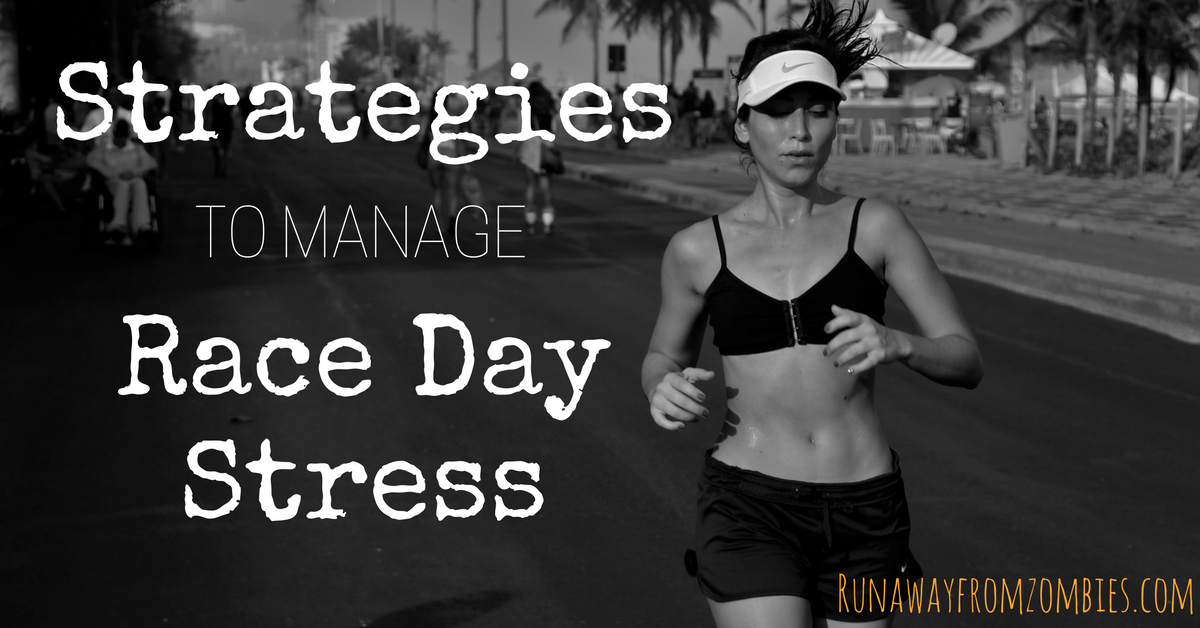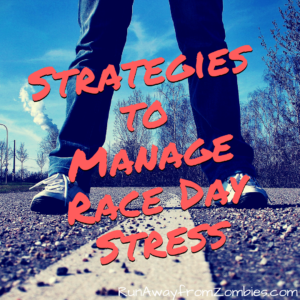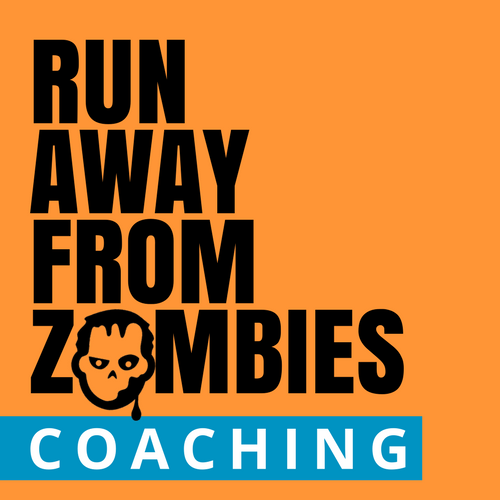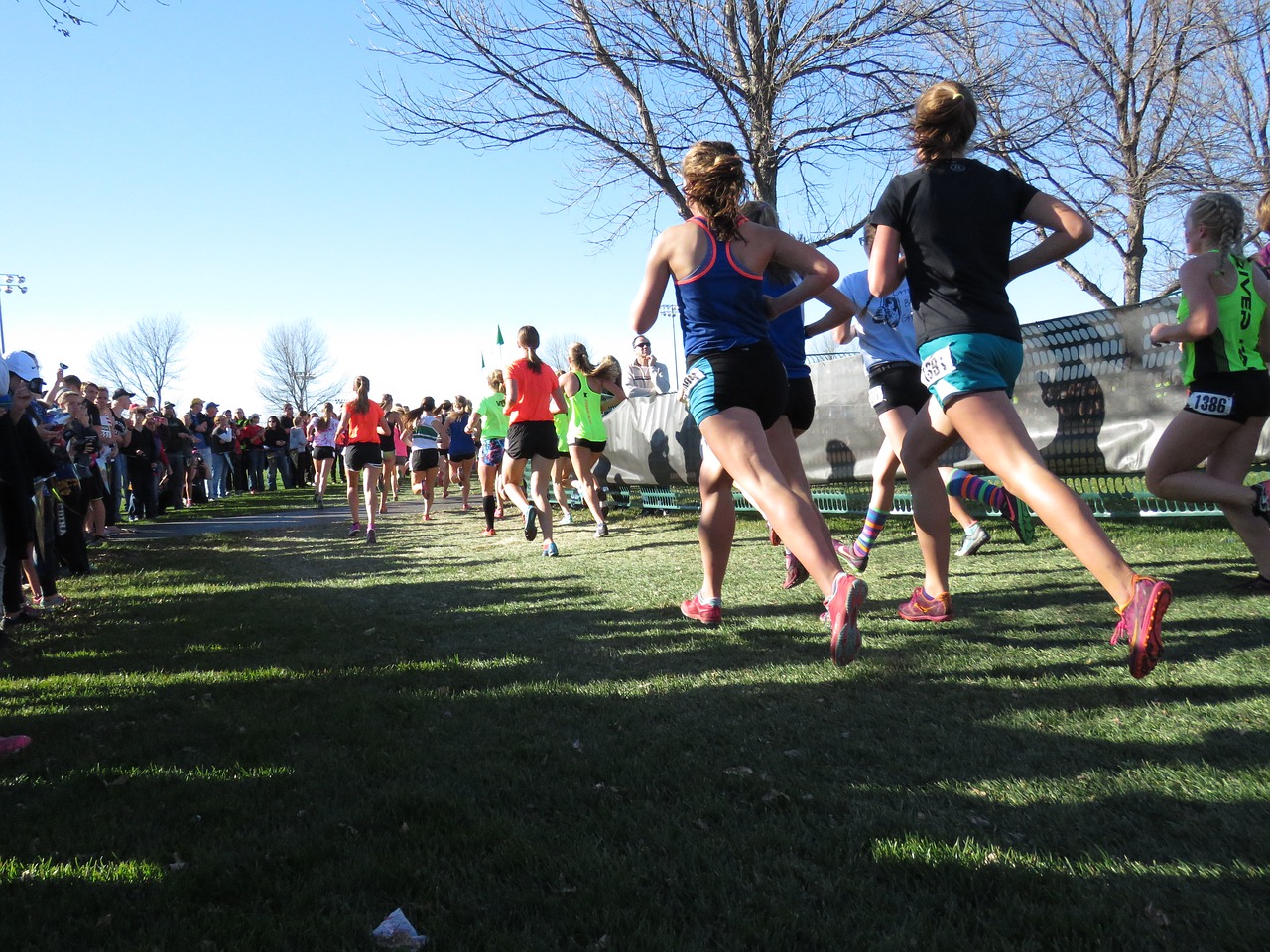With the Savannah Rock ‘n Roll Marathon coming up this weekend, I’m managing all-the-feels. Will all of my training pay off or will it be “just not my day”? I know nervousness will actually help me on race day if I don’t let it get out of hand. Here are some strategies to manage race day stress, so you can run your best.

Strategies to Manage Race Day Stress
Prepare and practice
Managing race day stress begins well before race day. If you have stressed for weeks before, you will have difficulty reeling that in on race day. So start now to identify stressors and do something about them.
Are you worried you will forget something on race day? Create a checklist.
Haven’t gotten ready for a race in a while? Sign up for a local 5K and practice getting up, eating, and traveling.
Not sure about the weather? Come up with rules on clothing ahead of time, so you won’t have to decide morning of.
Afraid of being too cold at the start? Get some “throw-away” clothes to keep warm and toss as the race gets started. You could use something old in your closet or grab something from Goodwill. Most races give discarded clothes to charity.
Know your racing and nutrition strategies. Check out this Runner’s World article on an intuitive pacing strategy for your first half or full marathon.
By working towards eliminating stress before the race, you can arrive calm and collected.
Visualization
During the taper is a great time to mentally rehearse the starting line, the race – the easy parts and the hard parts, and the finish line. Engage all your senses. What will the crowd buzz sound like at the start? How will your body react when the wind starts gusting midway through the race?
By “experiencing” these things, understanding your first reactions, and how you ultimately want to respond, it will be easier to step into those responses in the race.
If you have instilled in your mind the image of you crossing the finish line, feeling pushed, beaten-up, but ultimately triumphant, you can draw on that when the race seems never-ending, when you begin to ache, when things get hard.
Read a bit more on visualization here.

Breathing and Form
I often get nervous waiting at the start. I’m your classmate that volunteers to do their speech first. Not because I’m eager to share, but because I will get more nervous the longer I wait and every time the teacher asks “Who’s next?”.
So, I visualize the starting line with hundreds of people. What they’re doing, how some are confident and some are nervous. I can feel the nervousness starting in my stomach and creeping upwards, pulling my shoulders up to my ears. Then, I take a moment to realize my anxiety. I deliberately shrug my shoulders up with a deep inhale and drop them down with a long exhale, releasing the tension in my body. I set my eyes forward, toward the goal.
You can often tell how a runner is feeling by how they are running, their posture, their form. Shoulders hike up, arms tuck in or flail, breathing becomes labored, and the face contorts into death-face.
You know the face. It’s in all those race photos you don’t buy or post on Facebook.
Periodically check in with yourself before and during the race to determine if your anxiety is building. If you have trouble addressing the worries that are plaguing you, address the physical symptoms instead. Your body and mind feed off each other, if you can calm one down, the other with calm down as well.
Relax your face. Shake out your arms. Give a loud exhale through your lips like a horse. Focus on your elbows, keeping them at 90 degrees and moving behind your body with the back-swing.
Fix your body to fix your mind.
Re-framing
When I look at my watch after that first mile, there are only 3 outcomes. I’m on pace, too fast, or too slow.
All are equally likely and probably don’t matter much in the long run (pun intended).
But my response to those outcomes do matter. What will I tell myself when I see that time?
“OMG, you’re not very good at this. You’ve already blown it.”
Or, “Yes that’s fine, but let’s pick it up a bit and see what the next mile looks like.”
And with each mile, I can congratulate myself and make adjustments or I can discourage myself. And you have that same opportunity. Notice if you have a negative story for even positive outcomes! If you hit pace, do you feel panicked and think you’re going to die? Re-frame to get some positivity in your race.
Read more about re-framing here.
A little bit is a good thing
Stress and nervousness can actually help you perform. Learn to manage race day stress, harness it, and don’t let it get out of hand.
I’ll be right there with you, a nervous smile on my face, and reminding myself that I actually enjoy racing.
(And so do you!)
Stay calm and power on.
Further Reading:
- Dealing with Marathon Doubts
- No Meat Athlete’s 5 Powerful Breathing Techniques to Soothe Pre-race Anxiety
- Runner’s World: Train your Brain to Run Your Best
- Psychology Today: The Power of Visualization
- Runner’s World: How to Pace Your First Half or Full Marathon
- 10 Things to Know Before Your First Marathon

Share on social media!





Leave A Comment